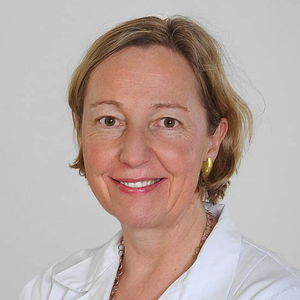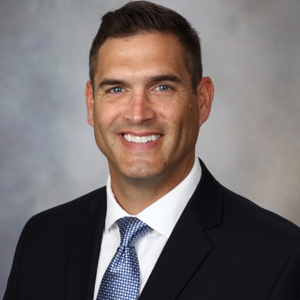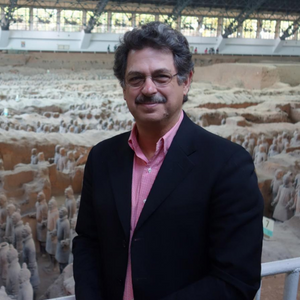
ICOPE clinical trials to maintain function as an example for future geroscience drug trials
Heike BISCHOFF-FERRARI, MD, PhD, INSPIRE project leader on Geroscience, Toulouse University Hospital, Toulouse (France) & Professor of Geriatrics and Age Research, Head of Internal Medicine – Oncology, University Hospital Zurich, Zurich (Switzerland)
Prof. Heike A. Bischoff-Ferrari trained in Geriatric Medicine, Rheumatology and Rehabilitation in Switzerland and the US, was a faculty member at Harvard Medical School in Boston from 2000 to 2005, and received a Doctor of Public Health degree from the Department of Nutrition at Harvard School of Public Health in 2008. After her return from the US, she built the Research Centre on Aging and Mobility at the University of Zurich, Switzerland and since 2013 holds the Chair of the Department and Network of Aging Medicine and Aging Research at the University of Zurich, the University Hospital in Zurich and the City Hospitals Waid & Triemli in Zurich.
Prof. Bischoff-Ferrari coordinates the European DO-HEALTH Longevity Trial and Biobank within a network of European and US researchers. The goal of this collaborative research effort is to identify effective public health solutions and early risk profils to slow the aging process and thereby reduce the risk of frailty and age-related chronic diseases, allowing more adults to stay active and healthy longer.
Prof. Bischoff-Ferrari is the Inspire project leader on Geroscience at the University of Toulouse Hospital

Translation drug trials in Geroscience: an overview
Nathan K. LeBrasseur, PhD, Co-Chair, Research Committee, Department of Physical Medicine & Rehabilitation, Director, Robert and Arlene Kogod Center on Aging, Mayo Clinic, Rochester, MN (United States)
Population aging is a remarkable success that, in part, reflects advances in science and medicine. The increase in life expectancy also poses significant challenges, as aging itself is the greatest risk factor for most chronic diseases. Nathan K. LeBrasseur, Ph.D., M.S., studies the biological processes that drive aging to develop novel interventions that delay, if not prevent, age-related conditions. The recent work of Dr. LeBrasseur's lab has centered on cellular senescence, a cell fate caused by diverse forms of damage, and the impact of senescent cells on physical function, metabolism and resilience.
-
Mechanisms of skeletal muscle aging. Dr. LeBrasseur and his team are studying how aging affects the health and function of cells that compose skeletal muscle, and how these changes result in skeletal muscle loss, fibrosis and fat infiltration at advanced ages. By developing interventions to counter the biology of aging, including cellular senescence, Dr. LeBrasseur and colleagues intend to optimize skeletal muscle strength and physical function and, in turn, prevent disability and frailty in older adults.
-
Biomarkers of biological age. There are often marked differences between chronological age (based on date of birth) and biological age (determined by the amount of damage to molecules and cells within the body). The research led by Dr. LeBrasseur seeks to develop measures of biological age using routinely collected blood samples. These measures can be leveraged in clinical practice to determine and manage risk related to medical interventions such as surgery, and in clinical research to identify people who may be most responsive to novel interventions targeting the biology of aging.
-
Lifestyle factors and aging. Aging is malleable and strongly influenced by both positive (physical activity and healthy nutrition) and negative (substance misuse and poor sleep habits) behaviors throughout the life course. The research conducted by Dr. LeBrasseur's lab explores the mechanisms through which lifestyle factors influence the body's defenses against, or ability to repair, diverse forms of age-related damage. Recent investigations have focused on how exercise can prevent the accumulation — and promote the clearance of — senescent cells.
Dr. LeBrasseur's goal is to identify safe and effective ways to promote healthy aging and optimize the clinical care of older adults. Dr. LeBrasseur's lab seeks to help guide clinical decision-making; develop innovative approaches to prevent, delay, or even reverse chronic diseases and geriatric syndromes; and enhance late-life function, independence and well-being.

Apelin Drug Development
William J Evans, PhD, Adjunct Professor of Human Nutrition, Department of Nutritional Sciences & Toxicology, University of California, Berkeley, CA (United States) & Adjunct Professor of Medicine Duke University Medical Center, Division of Geriatrics Durham, NC (United States)
One of the principal areas of my research has been the examination of the causes of late life disability. My research has examined the functional and metabolic consequences of physical activity in elderly people as well as how dietary protein and energy needs change with advancing age. I was the first to describe the condition called sarcopenia, the age-related loss of muscle mass and strength. Sarcopenia is a multifactorial problem resulting from a number of factors including decreased physical activity, decreased testosterone, estrogen, and growth hormone production, increasing insulin resistance, and poor diet. My research has also demonstrated that older people lose muscle mass and strength far more rapidly than do young people during enforce bed rest. These factors result in an increased risk of disability, falls, hospitalization, and institutionalization. The loss of muscle mass is also a common consequence of many chronic diseases such as cancer, chronic heart failure, and chronic obstructive pulmonary disease. Skeletal muscle is remarkably responsive to changes in nutritional status and physical activity. Decreased dietary protein intake can result in a rapid loss of muscle and low protein intake among elderly people may be one cause of sarcopenia. We have also demonstrated that the need for dietary protein increases with advancing age. In collaboration with the Hellerstein laboratory, we are exploring changes in muscle mass in infants and children during normal growth and elderly people using a new and accurate method to measure muscle mass. Our goals are to examine how feeding strategies in malnourished infants and children effect accretion of muscle mass as well as how muscle mass effects health outcomes in all populations.
|